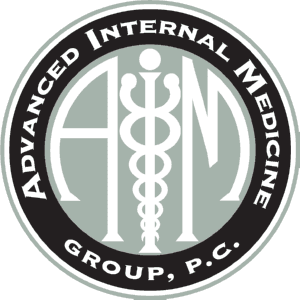In this blog from AIM Group in New York, we share information about Alzheimer’s disease to spread awareness.
What Is Alzheimer’s?
Alzheimer’s disease is a chronic neurodegenerative disorder that primarily affects the brain, leading to a gradual decline in cognitive function, memory loss, and behavioral changes. It is the most common cause of dementia, a syndrome characterized by a decline in memory, thinking, behavior, and the ability to perform daily activities.
The symptoms of Alzheimer’s disease typically develop slowly and worsen over time. Initially, individuals may experience mild memory loss and difficulties with language, decision-making, and problem-solving. As the disease progresses, they may become disoriented, have trouble recognizing family members and friends, and experience changes in personality and behavior. In the later stages, individuals may require assistance with basic activities of daily living and become increasingly dependent on others for care.
While there is no known cure for Alzheimer’s disease, there are medications available that can temporarily improve symptoms and slow down the progression of the disease in some individuals. Additionally, various interventions and support services can help manage the symptoms, enhance quality of life, and provide support for caregivers. Ongoing research aims to better understand the causes of Alzheimer’s disease and develop more effective treatments to combat this devastating condition.
Risk Of Alzheimer’s
- Global Prevalence: According to the World Health Organization (WHO), approximately 50 million people worldwide have dementia, and about 60-70% of those cases are due to Alzheimer’s disease.
- Prevalence in the United States: In the United States, it is estimated that over 6 million people are living with Alzheimer’s disease, making it the sixth leading cause of death. As the population ages, the number of cases is expected to increase.
Several factors can contribute to an increased risk of developing Alzheimer’s disease. While some risk factors cannot be modified, others can be influenced through lifestyle choices. Here are some known risk factors:
- Age: Advanced age is the most significant risk factor for Alzheimer’s disease. The likelihood of developing the condition increases significantly after the age of 65, and the risk continues to rise with each decade of life.
- Genetics: A family history of Alzheimer’s disease can increase the risk. Certain gene variants are associated with a higher likelihood of developing the disease. However, it’s important to note that having these genetic factors does not guarantee the development of Alzheimer’s, and individuals without these genetic markers can still develop the disease.
Lifestyle Factors That Can Contribute To Alzheimer’s Disease
- Cardiovascular Health: Conditions that affect the heart and blood vessels, such as high blood pressure, high cholesterol, diabetes, and obesity, may increase the risk of Alzheimer’s.
- Physical Inactivity: Lack of regular physical exercise is associated with a higher risk of developing Alzheimer’s disease.
- Smoking: Smoking tobacco has been linked to an increased risk of Alzheimer’s.
- Diet: Unhealthy dietary patterns, such as a diet high in saturated fats and low in fruits and vegetables, may contribute to a higher risk.
- Brain Stimulation: Engaging in mentally stimulating activities, such as reading, puzzles, social interactions, and lifelong learning, may help reduce the risk.
It’s important to note that having one or more risk factors does not mean an individual will develop Alzheimer’s, and some people without any known risk factors can still develop the disease. The interplay between these risk factors and the complex mechanisms of Alzheimer’s disease is an active area of research.
What Kind Of Support Do People With Alzheimer’s Need?
People with Alzheimer’s disease require comprehensive medical care that focuses on managing their symptoms, maximizing their quality of life, and providing support to both the individual and their caregivers. Here are some aspects of medical care for individuals with Alzheimer’s:
1. Diagnosis and ongoing monitoring: An accurate diagnosis is essential for developing an appropriate care plan. Doctors use medical history, physical examinations, cognitive tests, and sometimes brain imaging to diagnose Alzheimer’s disease. Regular check-ups and monitoring of symptoms help track the progression of the disease and adjust treatment as needed.
2. Medications: Several medications are available to manage the symptoms of Alzheimer’s disease. These drugs may help temporarily improve memory and cognitive functions or manage behavioral symptoms such as agitation or depression. They don’t stop or reverse the underlying disease process, but they can provide some relief.
3. Care coordination: Alzheimer’s care often involves a multidisciplinary approach. Healthcare professionals, such as primary care physicians, neurologists, geriatric specialists, and psychologists, may work together to coordinate care, address different aspects of the disease, and provide support for both the individual and their caregivers.
4. Supportive care: People with Alzheimer’s disease may require assistance with daily activities such as bathing, dressing, eating, and managing medications. Caregivers or professional care providers can offer support to ensure their safety and well-being.
5. Cognitive and behavioral interventions: Non-pharmacological approaches play a crucial role in managing symptoms. These may include cognitive stimulation therapy, memory aids, structured routines, and behavior management techniques. Occupational therapists and psychologists can provide strategies to enhance functioning and address behavioral challenges.
6. Education and support for caregivers: Caregivers of individuals with Alzheimer’s disease need information, guidance, and emotional support. Education about the disease, caregiving strategies, and available resources can help caregivers manage the unique challenges they face.
7. Social and emotional support: Alzheimer’s disease can be emotionally challenging for both individuals and their families. Support groups, counseling services, and community programs can provide emotional support and opportunities for social engagement.
It’s important to note that the specific medical care required may vary depending on the individual’s stage of the disease, their overall health, and the availability of resources in their community. Regular communication with healthcare professionals and specialists familiar with Alzheimer’s care can ensure appropriate and individualized medical care.

